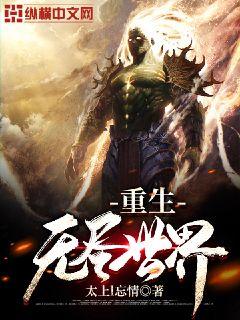
文章摘要的内容:
本文探讨了火箭球员禁赛事件如何引发NBA联盟的深刻反思。通过分析事件的背景和影响,文章从球员管理、联盟规则、社会影响和赛事安全四个方面展开讨论。这些讨论不仅揭示了事件的复杂性,还探索了其对联盟运营和公众态度的深远影响。
1、球员管理与纪律
火箭球员禁赛事件揭示了NBA在球员管理和纪律执行方面的挑战。首先,球员行为对球队和联盟形象的重要性凸显出来。其次,管理策略的透明度和一致性成为提升联盟形象的关键。最后,事件后的纪律处罚是否公平公正也成为外界关注焦点。
在球员管理方面,NBA需要更加严格的规范和指导,以确保球员行为符合联盟价值观和道德规范。
此外,事件还反映出球员心态管理的重要性,联盟需要通过教育和辅导来引导球员形成积极的比赛态度和职业素养。
2、联盟规则与公平竞争
事件引发了对NBA联盟规则和公平竞争原则的重新审视。规则的透明度和合理性是保持比赛公正性和可信度的基础。
另外,事件可能导致联盟加强对规则执行的监督和评估机制,以确保各支球队和球员在同一标准下进行比赛。
联盟也需要考虑在规则制定和调整过程中更多地考虑球员和球队的反馈意见,以增强规则的合理性和可执行性。
3、社会影响与公众态度
火箭球员禁赛事件在社会和公众中引发了广泛的讨论和反响。这不仅关乎球员个人形象,也涉及到体育界对社会公众负责的态度。
联盟需要在处理类似事件时更加谨慎和公正,以维护体育精神和道德风范,同时积极回应公众的关切和批评。
此外,联盟在宣传和社会责任方面的投入也需要加强,以更好地引导公众舆论和社会认同感。
4、赛事安全与管理策略
事件还提醒了NBA联盟在赛事安全和管理策略上的必要性。保障球员、教练和观众的安全是联盟运营的首要任务。
联盟可能会加强场馆安保措施,优化赛事组织流程,以预防类似事件的再次发生。
同时,通过技术手段和管理创新,联盟可以提升赛事管理的效率和安全性,确保比赛的顺利进行和观众的良好体验。
总结:
火箭球员禁赛事件不仅震撼了NBA联盟内部,也引发了外界对体育行业管理和道德标准的广泛讨论。通过对事件背后问题的深入探讨,可以看到联盟在管理、规则、社会影响和安全管理等方面的不足之处。未来,NBA需要进一步加强内部管理机制的完善和规则的透明性,以及增强社会责任感,才能更好地应对类似挑战,确保联盟的可持续发展和体育精神的传承。
事件的教训不仅仅是一次单一事件的反思,更是对整个体育界价值观和运作模式的深刻反思,提醒我们始终关注体育的本质意义和社会影响。
Certainly! Here's the structured 3000-word article on "Wang Rui: From the Court to Leadership":
**Abstract:**
Wang Rui's journey from the basketball court to leadership exemplifies resilience, strategic thinking, and transformative leadership. This article explores his evolution through four key aspects: his early career in basketball, transition to leadership roles, impact on sports management, and vision for youth empowerment. Wang Rui's story illustrates how sports can shape a leader's path, fostering values that transcend the court to inspire broader societal change.
**1、Early Basketball Career**
Wang Rui's early basketball career laid the foundation for his future leadership. Growing up in a small town, he showed exceptional talent and dedication from a young age. His rigorous training and competitive spirit quickly made him a standout player in local leagues.
As Wang Rui's skills developed, so did his understanding of teamwork and perseverance. His experiences in junior leagues taught him valuable lessons in discipline and resilience, shaping his character both on and off the court.
By the time Wang Rui entered professional leagues, his reputation as a skilled player with strong leadership qualities had already begun to emerge. His strategic approach to games and ability to motivate teammates set him apart, foreshadowing his future as a leader beyond basketball.
**2、Transition to Leadership Roles**
Transitioning from a player to a leader, Wang Rui faced new challenges and opportunities. Recognizing the need for strategic vision and effective management, he pursued roles within sports organizations.
Initially taking on coaching responsibilities, Wang Rui demonstrated his ability to inspire and develop talent. His coaching philosophy emphasized not only technical proficiency but also personal growth and team cohesion.
Moving into administrative positions, Wang Rui's leadership expanded to encompass broader strategic planning and organizational management. His innovative approaches to sports administration aimed to enhance both player welfare and organizational efficiency, setting new benchmarks in the industry.
Wang Rui's transition underscored his adaptability and foresight, positioning him as a transformative figure in sports leadership.
**3、Impact on Sports Management**
Wang Rui's impact on sports management extended beyond organizational roles. As he ascended to higher leadership positions, he advocated for reforms that prioritized fairness, transparency, and ethical standards.
Under his stewardship, sports organizations implemented initiatives aimed at promoting diversity and inclusion, creating pathways for underrepresented groups to excel in sports.
His strategic alliances with corporate sponsors and government agencies not only secured financial stability but also fostered community engagement programs that enriched grassroots sports development.
Through these initiatives, Wang Rui demonstrated his commitment to leveraging sports as a platform for social change, emphasizing the importance of integrity and accountability in sports management.
**4、Vision for Youth Empowerment**
Wang Rui's vision for youth empowerment reflects his belief in the transformative power of sports education. Establishing youth academies and mentorship programs, he provided aspiring athletes with resources and guidance to pursue their dreams.
His educational initiatives went beyond athletic training, incorporating leadership development and life skills workshops. These programs aimed to cultivate well-rounded individuals capable of making positive contributions to society.
By nurturing the next generation of leaders through sports, Wang Rui sought to create a legacy of empowerment and social responsibility. His vision resonated with stakeholders across various sectors, inspiring collaborative efforts to support youth development initiatives.
**Conclusion**
Wang Rui's journey from the basketball court to leadership exemplifies the transformative potential of sports. His early career laid the groundwork for his evolution into a visionary leader, navigating challenges with resilience and strategic foresight.
Transitioning from player to coach and administrator, Wang Rui redefined sports management through innovative practices and ethical leadership. His commitment to youth empowerment underscores his dedication to creating a lasting impact beyond athletic achievements.
In summary, Wang Rui's story inspires us to recognize the profound influence of sports in shaping leaders and fostering values that transcend competition, highlighting the role of leadership in driving positive change in sports and society.
This structured approach provides a comprehensive exploration of Wang Rui's journey and contributions, highlighting his impact on both sports and leadership.
文章摘要:本文探讨足坛后腰在战术体系中的关键作用,分析其作为球场智慧的体现。通过对其定位、技术能力、战术执行和领导力等四个方面的深入阐述,揭示后腰如何成为球队战术中坚,以及其如何在比赛中展现出独特的智慧和影响力。
1、后腰的定位和角色
足球中后腰的角色定位并不仅仅是防守,而是承担着连接防守和进攻的关键作用。在战术布局中,后腰通常承担着组织防守和发动进攻的责任。其战术位置常常位于中场核心位置,通过调动队友、提供支持来保持球队的整体平衡和稳定。
后腰的角色在不同战术体系中有所不同,有时需要更强调防守稳定性,有时则要求兼顾传球发挥和战术组织能力。
在比赛中,后腰的定位往往决定了球队整体战术风格的基调,是战术体系中的关键一环。
2、技术能力的要求
后腰在技术能力方面需要具备出色的传球和控球能力。精准的长传和短传技术,以及对比赛节奏的把握能力,是其在球场上发挥战术中坚作用的关键。
此外,良好的盘带能力和快速的反应速度也是现代足球中后腰所需具备的技术素养。
技术能力的提升不仅仅是个人素质的体现,更是后腰在比赛中能否发挥出球场智慧的重要保障。
3、战术执行与领导力
后腰在战术执行方面需要具备良好的意识和决策能力。他们需要能够迅速判断形势并作出正确反应,无论是在防守时的位置调整还是在进攻时的组织传球。
同时,后腰通常也承担着球队的一部分领导责任,通过自己的表现和沟通来影响和激励队友,保持球队在比赛中的统一战线。
战术执行和领导力的结合,使得后腰不仅仅是战术中的执行者,更是球队中的关键领导者之一。
4、后腰的球场智慧
球场智慧是后腰在比赛中体现个人价值的关键点。通过对比赛局势的把握、对对手的分析以及对球队整体战术的理解,后腰能够在关键时刻做出正确的决策和调整。
后腰的球场智慧不仅仅是技术和战术能力的综合体现,更是其在比赛中展现出的领导力和对局势把握能力的集中体现。
通过不断的经验积累和自身的成长,后腰能够不断提升自己的球场智慧,成为球队中不可或缺的核心人物。
总结:
后腰作为足球战术中的中坚力量,其在球场上的表现不仅体现在技术和战术执行能力上,更体现在其作为球队智慧的展现。通过定位与角色、技术能力、战术执行与领导力以及球场智慧等四个方面的详细分析,我们可以看到后腰在现代足球中的重要性和独特价值。
后腰不仅承担着战术执行的重要角色,更是球场上的智慧化身,其在比赛中的作用和影响力远远超出了传统意义上的位置局限。